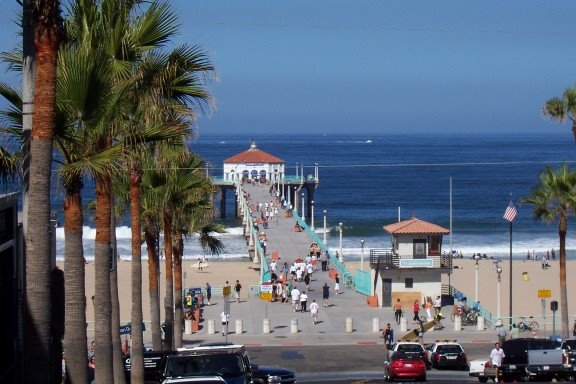I can always tell who has insomnia, watches late night infomercials or has gone to the Get Rich Quick Buying Real Estate Seminar. The requests for information always start with I want a list of foreclosure property and usually end with I want a positive cash flow and I don't have much money for a down payment.
As the real estate market slows the articles and ads on buying foreclosures
(distressed properties) are everywhere. They all tout how to make a fortune buying foreclosure property at prices significantly under market with nothing down and then selling and making a huge profit. For a mere $300 or $400 or $500 the Get Rich Quick Guru's will sell you the whole program to make you a real estate tycoon on a par with Donald Trump.
My response is if it's so easy why are these guys selling programs instead of buying property. The answer is simple... It's not that easy.
Yes, you can make money from property that has gone into foreclosure. However much depends on the location of the property, the condition of the property and the local real estate market. Also... you need lots of cash to buy a property that has been foreclosed by a lender. The bank wants its money! The Bank is not about to sell a property to someone with no cash after they foreclosed it because the owner couldn't make the payments. Let's talk about the major things to consider when thinking of buying a distressed property.
Property Location: Generally properties that actually wind up in foreclosure are rarely on The Strand in Manhattan Beach or in the Colony in Malibu. Sure these properties can go into foreclosure but they are rare and the loans on them are so high that they are beyond the reach of most potential buyers. A $10 million dollar property may have a mortgage of $5 million that needs to be cleared. Wow.. what a bargain...$5 million under the market. But not many of us have $5 million in cash we are ready to plunk down to save the $5 million. So the Strand house is probably out of your reach.
Sadly most homes sold on the courthouse steps are in areas where there is high unemployment and/or drug and gang activity. Yes, there are higher income areas that have foreclosures but they are fewer and generally more costly. If you have a lot of people who work for GM and they have a massive layoff then you will see foreclosures in that neighborhood. Most homeowners will do everything to save their home from foreclosure. If it goes into foreclosure then the homeowner may owe more then the property is worth. These properties usually wind up as REO's which are often not as good a deal as a normal transaction..
Property Condition: Properties that are sold in foreclosure are usually in poor to very bad shape. Many will have significant structural damage. Often the homeowner will take all the appliances, fixtures and just about anything that can be removed; including carpet, hardwood flooring, door jams and interior doors. Often the homeowner is so angry that he does as much damage as possible to get back at the bank for taking his home.
Financing: You need to have all cash to purchase a property that is in foreclosure. You will need to pay off the mortgage that is being foreclosed, all fees associated with the foreclosure and often back taxes. You should check to see if the mortgage being foreclosed is a first or a junior lien. If it is a junior lien you may have to make up back payments on the first mortgage and may need to arrange new financing to pay off the first mortgage. Most lenders will not allow their loans on foreclosed property to be assumed.
REO's: Many people want to buy foreclosures as they think they will save thousands of dollars. Remember this, it will save you a lot of headaches...Banks are not Stupid.... Banks Always Win! That's why they have lots of cash in their vaults. Banks usually wind up owning homes they foreclose on simply because most people don't have the resources to buy on the courthouse steps. These are REO or Real Estate Owned properties. Banks will have it cleaned up and offer it through a Real Estate professional at market value. Occasionally you can purchase directly from a lender but usually they only deal through a professional agent. Most banks are large Corporations and they don't want to deal with a buyer directly unless the buyer is also a large Corporation or Big Bucks Investor. You can often make a better deal with a homeowner who is motivated to sell then an instructional lender.
Short Sales: In the 1990's the Banks finally figured out that in many cases they were better off taking a sale with a price less then the loan amount.
There are a lot of expenses involved in foreclosing on a home. However, Banks hate short sales as they think it will make people think they can get away with something. Banks rarely take the blame for making loans on homes in excess of their value and putting homeowners at risk. But often the Bank who made the loan did not use good judgment.
IRS Liens: One of the things you need to research is if there is an IRS Tax Lien against the property. If the IRS lien is recorded prior to financing of the loan that is foreclosing then foreclosure doesn’t get rid of lien it stays and a new owner could be responsible for taxes due secured by the property. If the lien was recorded after the financing of the foreclosing lender then foreclosure wipes out lien. However IIRS has 120 days to redeem the sale and take back the property. They would reimburse a new owner for cost spent but nothing else. The IRS may not bother with a $400,000 property with little equity in poor shape but you can bet they will pursue the $10,000,000 Beach home with $5,000,000 equity. Tax liens are areas prospective buyers often overlook and can cause real problems.
Buying foreclosed properties can often be a good investment but you really must do your homework. You have to know what the real market value is of the property. What is the property worth today? If you pay $500,000, for a property worth $430,000 that is not a good deal. What liens are against the property? Most liens are wiped out by foreclosure but not all so be careful. You should figure out what expenses you will have to put the property in shape, how much of the work you can do yourself and how much you will need to pay to have done. If you can't tell one end of a hammer from a screwdriver and have limited resources then a foreclosure may not be in your future. There will always be stories about the guy or bought the $1,000,000 home for $200,000 and once in a while it might even be true. Often these stories are just new versions of urban myths or worse Get RICH QUICK GURU’S tales to part you and your money. For an inexperienced Buyer with limited cash the best way to buy a home is often the traditional way. Find a good agent you trust who will help you negotiate the best price possible. Remember the three rules of real estate… Location… Location… Location! Buy in the best neighborhood you can even if the home is small or needs some work. You can do everything you want to a house except change the location. Be realistic, your first home is just that; a first home. This is where you will learn the basics of homeownership and build equity to step up to the next level. Mom and Dad were right… there is no free lunch and you can’t get something for nothing.
Subscribe to:
Post Comments (Atom)





No comments:
Post a Comment